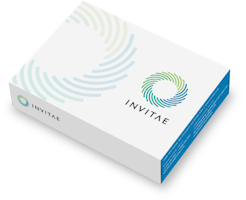
Invitae Chromosomal Microarray Analysis (CMA)
Test code: 56033
Fast turnaround
This test has a faster turnaround time than most Invitae panels.
Test description
The Invitae Chromosomal Microarray Analysis (CMA) is intended to aid in the diagnosis of chromosomal abnormalities associated with developmental disorders, including developmental delay (DD), intellectual disability (ID), multiple congenital anomalies (MCA), dysmorphic features, autism spectrum disorders (ASD), seizures, and epilepsy. This test reports detected whole and segmental aneuploidies, submicroscopic copy number variations (CNVs) that cannot be detected by conventional karyotype, size and gene content of CNVs, regions of homozygosity, and uniparental isodisomy. Mosaicism for aneuploidy may be reported when present at or above the detection threshold of 20%.
The Invitae Familial Chromosomal Microarray Analysis (CMA) can be offered as a next step for testing family members. CMA can only determine if the family member does or does not carry the detected variant and may aid in the reclassification of variants of uncertain significance in certain circumstances. Furthermore, CMA is unable to identify balanced structural rearrangements, including translocations, insertions and/or inversions, and is, therefore, not recommended for unaffected family members when a structural rearrangement is suspected in the proband. Other cytogenetic tests not offered by Invitae, such as fluorescence in situ hybridization (FISH) or karyotype, may be warranted in those scenarios. Invitae CMA does not qualify for Invitae’s Family Variant Testing (FVT) or VUS Resolution programs, so all Familial CMA orders will be charged regardless of classification. To order CMA on family members, please visit here for the paper TRF.
Ordering information
Turnaround time:
10-12 calendar daysNew York approved:
NoPreferred specimen:
4mL blood in an EDTA (purple top) tube, buccal swabLearn more about specimen requirementsRequest a specimen collection kitClinical description
To view the complete clinical description of this panel, click here.